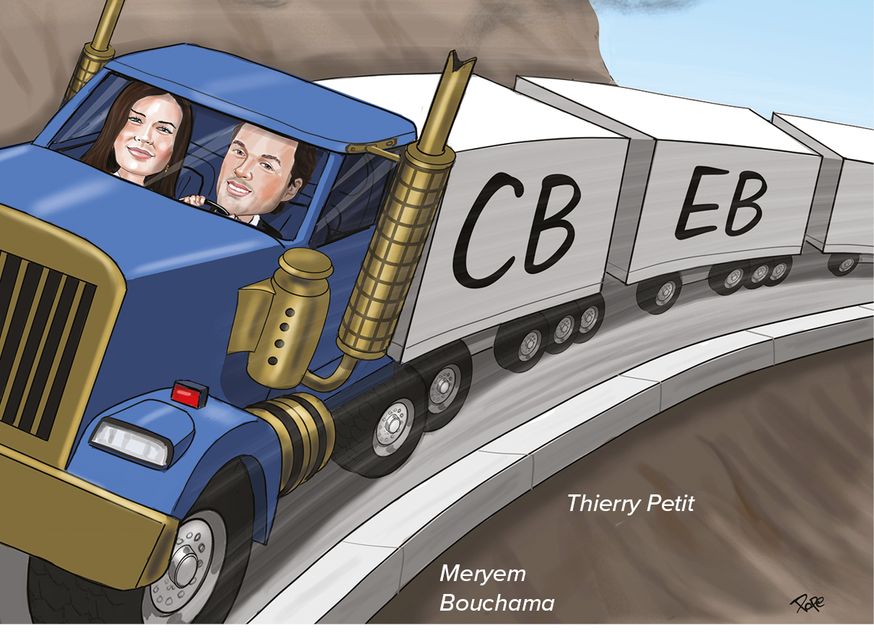EMEA Structured Equity House: BNP Paribas
Market drivers
BNP Paribas was comfortably the most active bank in terms of dollar issuance and number of deals, again, underlining its importance in the market's recovery in a changing rates environment and making it IFR's EMEA Structured Equity House of the Year.

At times, it seems like BNP Paribas doesn't just lead, but runs the equity-linked market in EMEA. It opened the market with a €400m five-year CB for French engineering group Spie on January 10 that priced at best for the issuer and closed the year when most were already getting stuck in to the port, with a NKr1bn (US$97m) five-year for Norway's Hexagon Purus on December 20, its second trade for the electronic vehicle parts maker in the year.
A €1bn CB for Cellnex on the last Friday of July was punchy, but also the first opportunity to trade off the back of strong first-half numbers published the previous day. The deal involved a massive 24-bank syndicate with the repeat issuer putting BNPP in its regular spot at the top. An ability to read the market view was essential, with BNPP reopening the market after the break with a new name to equity-linked, Italian oil services firm Saipem, achieving balanced mid-point pricing on August 30. Is the market open? Best ask the gatekeepers.
Issuance doubled in the region in 2023, with BNPP on 13 of the 33 deals completed during the year – ignoring Simon Property/Klepierre's exchangeable where BNPP was passive. It was also the only bank to make it into double figures and it was top line on 12 of those.
The only role where it was not at the top was an active bookrunner role when Wendel issued a €750m exchangeable into Bureau Veritas and where the market judgement of the most active team in the region was vital. The deal came in the days in March between UBS rescuing Credit Suisse and an all important Federal Reserve meeting with BV going into a reporting blackout a few days later. The deal was covered in an hour, anchored around long-only money, and priced at the mid-point of guidance.
“With the market on a recovery path but still so volatile, it was essential to seize the right window,” said Thierry Petit, head of EMEA equity-linked.
German defence business Rheinmetall showed capacity for jumbo trades, raising €1bn in late January on its debut, the largest deal in over a year at the time, while Austrian steel company Voestalpine was tempted back to equity-linked after an 18-year absence.
BNPP continues to shepherd ESG structures for clients that want them. Italian gas infrastructure company Snam raised €500m in September from the world’s first transition exchangeable bond. Spie was only EMEA’s third sustainability-linked CB, following Schneider and Edenred in 2020 and 2021, both BNPP-led deals.
The recipe for success in identifying optimal and sometimes tight windows in a still nervous market was constant dialogue, achieved by being in the market nine months of the year, way more than any other bank. That was matched up with significant reverse enquiry, with well over 100 investor enquiries about more than 70 issuers across three continents.
"No deals took us by surprise this year," said Meryem Bouchama, a UK-based managing director in the equity-linked team. "Even those deals you are not on, you need to know they are coming."
One blip was the x-tinymce/html €650m seven-year issued by Schneider Electric, a rare deal launched on a Monday morning without pre-sounding. Rivals were scornful of the need to change the dividend treatment while in the market, yet the client still secured a sub 2% coupon and issued off a near all-time share price high.
BNP Paribas has a sales and trading team when many rivals don't, and it has two managing directors when, sadly, competitors have been guilty of putting more junior bankers in the position of head of equity-linked. The seniority and scale of the bank's commitment to equity-linked means it probably has to be number one. Even so, it deserves recognition for investing in a product that offers corporates different answers and so many others have forgotten.
"In a year where supply was lower than expected, we made sure to keep the market alive every month where we felt there was a window and we pushed for the demand and got deals done," said Petit. "We made sure we were in the driving seat and deciding who should go when as we had the best visibility on the pipeline."
To see the digital version of this report, please click here
To purchase printed copies or a PDF of this report, please email shahid.hamid@lseg.com in Asia Pacific & Middle East and leonie.welss@lseg.com for Europe & Americas.






